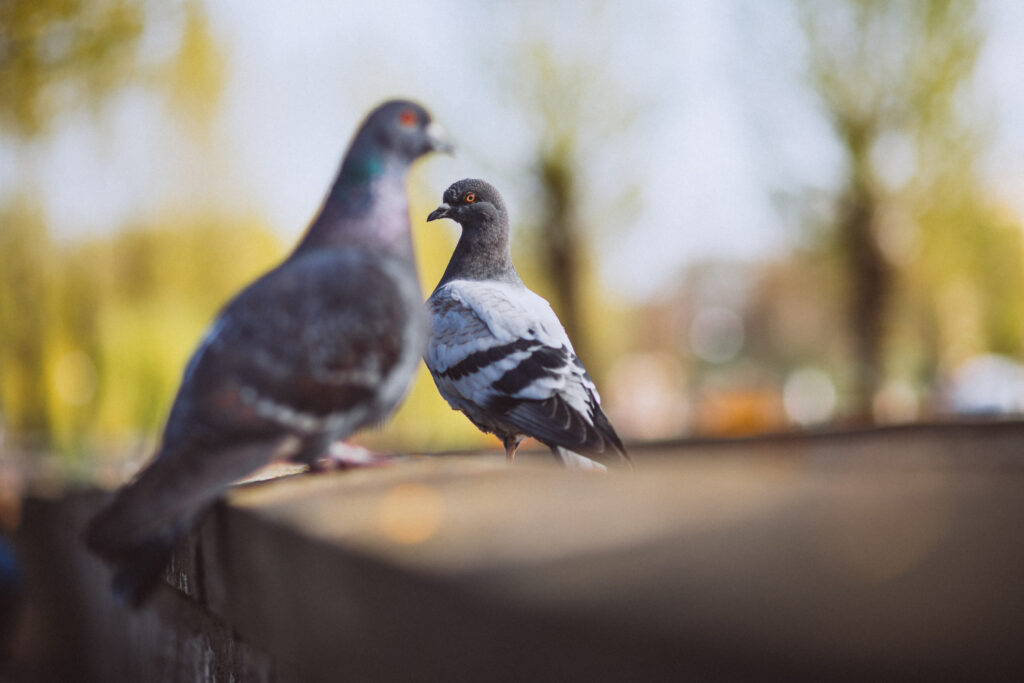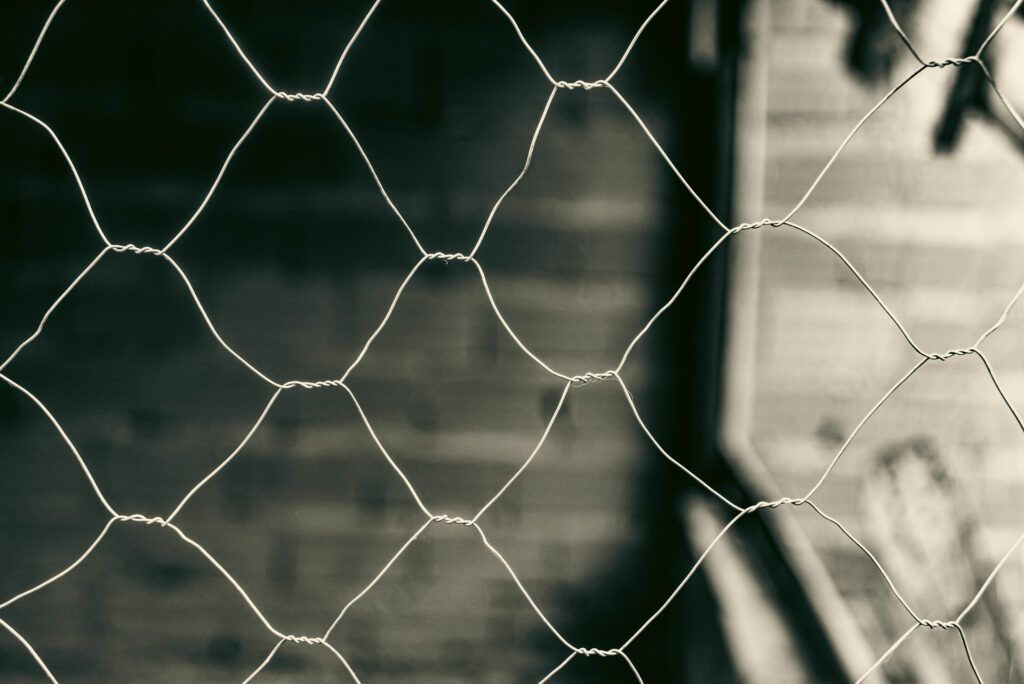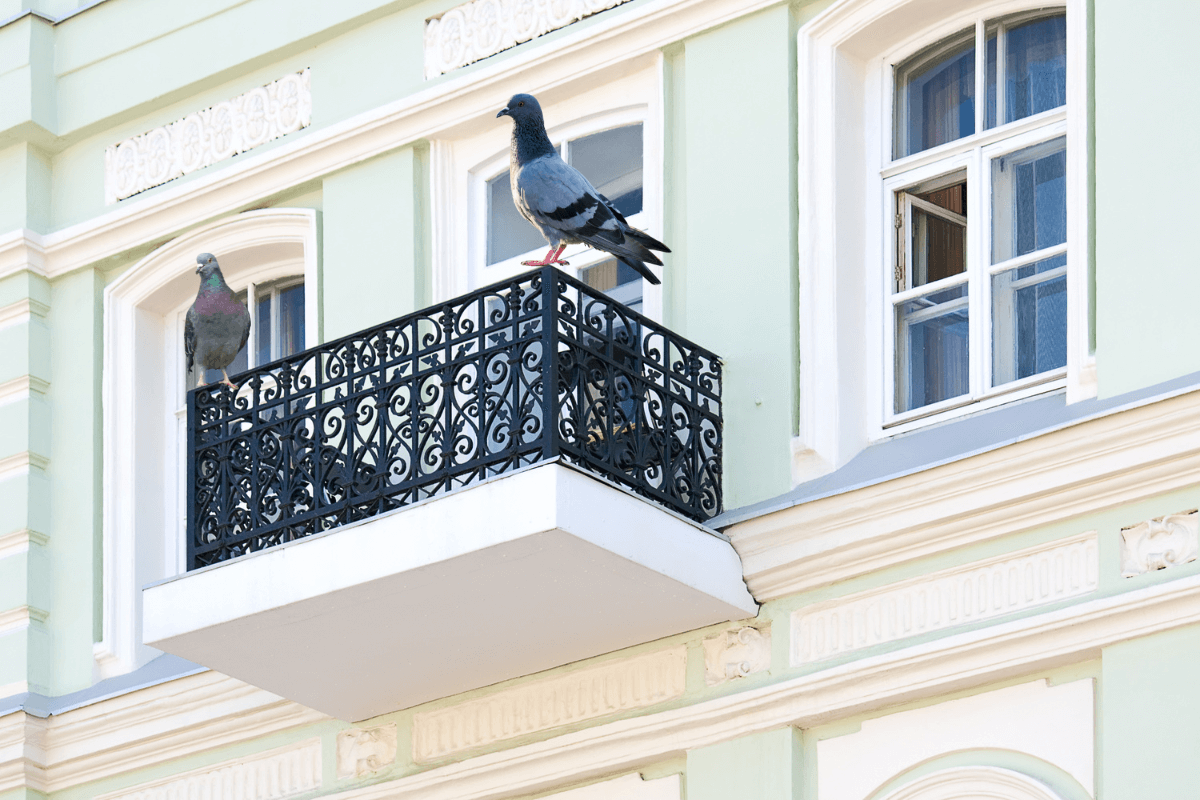Pigeons might seem harmless at first, but their presence on your balcony can lead to mess, noise, and even potential health risks. If you’re dealing with a pigeon problem, you’re not alone—these birds are notorious for nesting in urban areas where balconies provide the perfect roosting spot.
In this article, explore effective and humane ways to get rid of pigeons and keep your balcony pigeon-free.
Why Pigeons are a Problem?
While pigeons don’t pose immediate harm, they can become a significant nuisance over time. Here’s why:
- Droppings Damage: Pigeon droppings are acidic and can damage surfaces over time. They can stain or corrode balcony flooring, railings, and even outdoor furniture.
- Health Concerns: Pigeon droppings can carry pathogens that lead to diseases like histoplasmosis and psittacosis, posing health risks.
- Noise Pollution: The cooing and flapping can become a constant annoyance, especially during the early morning hours.
- Nesting Mess: Once they decide to nest, pigeons bring twigs, leaves, and feathers, creating a mess on the balcony.
Common Reasons Why Pigeons Are Attracted to Your Balcony
Pigeons are attracted to balconies for several reasons. Here are some of the most common reasons why pigeons keep coming to balconies:
Food: Pigeons are scavengers and are always on the lookout for food. If you leave any food outside on your balcony, the pigeons will be attracted to it.
Water: Pigeons need water to survive and will often come to balconies if they can find a source of water, such as a bird bath or a pool.
Shelter: Balconies can provide shelter for pigeons, especially during harsh weather conditions like rain or strong winds. The shelter can protect them from the elements and keep them warm.
Nesting: Pigeons may also come to balconies to build their nests. If there are any small openings or spaces on your balcony, pigeons may use them as a nesting site.
Perching: Pigeons also like to perch on balconies as it provides them with a good vantage point to keep an eye out for predators or other pigeons.
To prevent pigeons from coming to your balcony, you should make sure there is no food or water available for them. Keep your balcony clean and remove any leftover food or water. You can also install bird spikes or bird netting to prevent them from landing or nesting on your balcony. Blocking any small openings or spaces can also deter pigeons from using your balcony as a nesting site.
Why You Should Get Rid of Pigeons from Your Balcony?
Having pigeons on your balcony can be dangerous in a number of ways. The following are some possible risks of having pigeons on your balcony:
Health Risks
Pigeons can transmit diseases, and the parasites and germs in their droppings can be dangerous. Pigeon feathers and droppings can cause major health issues like respiratory infections and other ailments if you or your pets come into contact with them.
Loss of Property
Particularly if they are nesting on your balcony, pigeons can seriously harm your property. They are able to destroy furniture, plants, and other goods by scratching and pecking at surfaces.
Noisy Environment
Pigeons may make a lot of noise, especially while they’re mating. They can be annoying with their cooing and wing flapping, especially if you live in an apartment building or a densely crowded region.
Fall and Slip Risks
Pigeon droppings are slick and can make your balcony a slip-and-fall hazard. On your balcony, a slip and fall could cause a person to sustain catastrophic injuries.
Fire Risks
If pigeon nests are constructed close to electrical cables or other heat sources, they may present a fire risk. Additionally, pigeons may carry grass and other flammable items to their nests, raising the possibility of a fire.
Pigeon Problems: Facts, Figures, and Health Hazards
Pigeons are common in urban areas, but they’re often more than just a nuisance. Here’s a closer look at how much pigeons can irritate balcony owners, the problems they create, and the health risks associated with them:
1. Pigeon Infestation on Balconies is a Common Urban Problem

- Studies show that pigeons are among the most prevalent bird pests in cities worldwide. A report from the UK’s Pest Control Association found that around 40% of urban households in major cities experience some form of bird-related nuisance, with pigeons being the most reported.
- In cities like New York, pigeon complaints to pest control services make up over 60% of bird-related calls, highlighting the high volume of infestations on balconies, rooftops, and other accessible areas.
2. Property Damage and Maintenance Costs
- Pigeon droppings are not just unsightly; they’re also highly corrosive. Research indicates that pigeon guano has a pH between 3 and 4.5, making it acidic enough to wear down paint, concrete, and even metal over time. Cleaning and repairing balcony surfaces due to pigeon droppings costs U.S. property owners over $1.1 billion annually.
- Nests and droppings can also clog drainage systems, causing leaks and water damage to balconies and nearby walls. In severe cases, such blockages can lead to structural damage, resulting in costly repairs for homeowners and building managers.
3. Health Hazards Associated with Pigeons
- Pigeons are known carriers of bacteria and fungi that can spread serious diseases. Studies by the Centers for Disease Control and Prevention (CDC) highlight that pigeon droppings can carry pathogens like Histoplasma, Cryptococcus, and Chlamydophila — the sources of diseases like histoplasmosis, cryptococcosis, and psittacosis, which pose risks to humans, especially those with compromised immune systems.
- Health surveys in urban areas reveal that up to 12% of respiratory cases in people living near large pigeon populations can be attributed to airborne particles from dried droppings. When inhaled, these particles can lead to respiratory problems, allergies, and worsening of asthma symptoms.
4. Allergen and Pest Attraction
- Pigeon droppings attract other pests, including insects and rodents. The droppings provide a breeding ground for flies, which are not only unpleasant but can also carry additional diseases.
- Furthermore, dried droppings can produce fine dust that acts as an allergen, causing eye, nose, and throat irritation among residents. The World Health Organization reports that around 15% of people with allergies in high-pigeon areas report worsened symptoms due to these allergens.
Why Humane Pigeon Control Matters?
Using humane pigeon control methods isn’t just ethical—it’s effective. Non-invasive solutions are long-lasting because they work by making your balcony unappealing to pigeons without causing them harm, which means they won’t be motivated to return. This approach also respects wildlife and avoids the potential legal and ethical issues associated with harmful pest control.
Humane Ways to Get Rid of Pigeons on Balcony
Dealing with pigeons doesn’t have to be harmful. Humane methods not only keep your balcony clean and pigeon-free but also respect wildlife. Here are effective ways to deter pigeons while keeping their safety in mind:
1. Use Natural Deterrents
Natural deterrents are safe, easy, and non-invasive options to discourage pigeons:
- Essential Oils and Citrus Peels: Pigeons have a strong sense of smell and dislike scents like peppermint, citronella, and citrus. Place a few drops of essential oil on cotton balls and scatter them around your balcony. Alternatively, use fresh lemon or orange peels in pigeon-prone areas.
- Vinegar Spray: A simple mix of vinegar and water (1:1) can act as a powerful repellent. Spray it along ledges, railings, or other areas where pigeons perch. Reapply every few days or after rain to keep the smell strong.
These natural deterrents will not harm pigeons but will make your balcony less appealing to them.
2. Reflective Objects to Scare Pigeons Away
Reflective items create visual disruptions that keep pigeons uncomfortable and less likely to stay. Here’s how to use them:
- Hang Reflective Tape or Old CDs: Reflective tape or CDs strung around your balcony will create flashes of light that pigeons find unsettling. Hanging them in areas where pigeons perch can discourage them from landing.
- Wind Chimes or Mirror Spinners: Wind chimes with reflective surfaces not only produce sound but also reflect light, creating a dual deterrent. Mirror spinners can also be effective in areas with direct sunlight, adding a visual element that pigeons prefer to avoid.
This method is humane, cost-effective, and works best when combined with other deterrents.
3. Install Anti-Roosting Spikes
Anti-roosting spikes are one of the most effective and long-lasting solutions for pigeon control:
- Safe and Non-Harmful: These spikes don’t injure pigeons; they simply make it uncomfortable for them to land. Install them along railings, ledges, or any flat surface where pigeons might perch.
- Low-Maintenance and Discreet: Most spikes are made from plastic or stainless steel, blending well with balcony decor. Once installed, they require minimal upkeep.
Available at most hardware stores, anti-roosting spikes provide a humane way to keep pigeons from roosting on your balcony without altering its appearance.
4. Install Bird Netting

Bird netting is a humane, highly effective solution if pigeons are nesting or spending a lot of time on your balcony.
- Creates a Physical Barrier: Netting completely blocks pigeons from entering your balcony space, making it one of the best options if you have a persistent pigeon issue.
- Transparent and Durable: Bird netting is typically transparent, so it won’t obstruct your view, and UV-resistant versions are designed to withstand outdoor conditions.
Ensure that the netting is securely fastened and covers the entire area you want to protect. Once installed, it’s low-maintenance and keeps your space pigeon-free without any harm.
5. Use Decoy Predators
Pigeons are naturally wary of predators, and a strategically placed decoy can be enough to keep them at bay.
- Owl or Hawk Decoys: Place a plastic or rubber decoy of an owl or hawk on the balcony. Move it every few days to make it appear more realistic, as pigeons are quick to notice stationary objects.
- Combine with Other Deterrents: Decoys work best when used alongside other methods, like reflective tape or netting, for a more effective deterrent strategy.
This method is affordable and humane, tricking pigeons into avoiding your balcony without causing harm.
6. Ultrasonic Bird Repellers
Ultrasonic bird repellers emit high-frequency sounds that disturb pigeons but are inaudible to humans. These devices can be a great humane solution:
- Safe and Non-Invasive: Ultrasonic devices create no physical barrier and don’t cause harm—they simply deter pigeons from settling on your balcony.
- Motion-Activated Options: Some ultrasonic devices are motion-activated, turning on only when they detect movement, which conserves energy and prolongs battery life.
Place these devices strategically, such as near pigeon-prone spots, for an easy, humane deterrent that requires minimal maintenance.
7. Prevent Access to Nesting Spots
Pigeons are drawn to enclosed, protected spots for nesting. Making these areas inaccessible can discourage them from settling.
- Cover Planters and Gaps: Use mesh or stones to cover exposed soil in planters, preventing pigeons from using them as nesting sites. Block off small gaps or corners where they might try to nest.
- Regularly Check for Nesting Signs: If you spot nesting materials like twigs or feathers, clear them away to discourage pigeons from settling down.
This approach is non-invasive and ensures pigeons won’t return to your balcony to breed.
8. Provide Alternative Feeding Areas
If you’re an avid bird lover, it may be difficult to stop feeding pigeons altogether. However, relocating feeding to a designated area can help:
- Feed Birds in a Nearby Park: If possible, feed birds in a public space away from your balcony. This way, you can still enjoy birdwatching without attracting pigeons to your home.
- Avoid Leaving Food Outside: Pigeons often come back to places where they find food, so keep your balcony free of crumbs, food containers, and pet food.
Redirecting food sources is an effective way to reduce pigeon visits while still enjoying bird-friendly activities elsewhere.
Frequently Asked Questions on How to Get Rid of Pigeon on Balcony
What smells do pigeons hate and how can I use them on my balcony?
Pigeons dislike strong scents like citrus, vinegar, and peppermint. Place essential oils or vinegar-soaked cotton balls on ledges or spray directly on areas where pigeons perch to keep them away.
Are there humane ways to keep pigeons off my balcony?
Yes, humane methods such as bird spikes, netting, decoys, and reflective objects can effectively deter pigeons without causing harm.
How do I permanently stop pigeons from nesting on my balcony?
To prevent nesting, consider installing bird netting, spikes, or motion-activated devices. These deterrents make your balcony unappealing and hard to access for nesting pigeons.
Do ultrasonic devices work to keep pigeons away from my balcony?
Ultrasonic devices can be effective in deterring pigeons, especially when used alongside other deterrents like reflective objects or spikes to cover multiple deterrent methods.
Is pigeon droppings on my balcony dangerous?
Yes, pigeon droppings can harbor harmful bacteria and fungi, posing health risks such as respiratory infections and allergies if inhaled or touched. Regular cleaning is recommended to avoid these risks.
What’s the best way to clean pigeon droppings safely from a balcony?
Wear gloves and a mask, spray a disinfectant on the droppings, and gently scrub the area. Use disposable cloths or sponges and avoid touching droppings directly to prevent contamination.
Can reflective surfaces really deter pigeons from my balcony?
Yes, pigeons are disturbed by flashes of light. Hanging reflective items like tape, old CDs, or aluminum foil can keep pigeons away by creating visual disturbance.
Why do pigeons keep coming to my balcony, and how can I stop it?
Pigeons are attracted to easy food sources, sheltered nesting spots, and safe perching areas. Removing food, installing deterrents, and keeping the area clean can reduce pigeon visits.
How much does it cost to install pigeon deterrents on a balcony?
Costs vary based on the method you choose; simple deterrents like spikes and reflective tape are affordable, while bird netting or ultrasonic devices may require a higher investment.
Are there any plants that naturally repel pigeons from balconies?
Yes, certain plants like lavender, peppermint, and marigolds have strong scents that pigeons dislike. Placing these plants on your balcony can naturally discourage them from landing.
Can I use Old CDs to get rid of pigeons?
Yes, you can use old CDs to get rid of pigeons as they can act as a reflective deterrent by creating a flickering effect that scares the birds away.
Is Bird netting can help me get rid of pigeons?
Of course, bird netting can help you get rid of pigeons by preventing them from accessing your balcony. The netting creates a barrier that stops pigeons from landing or nesting on your balcony.
What kind of Bird Repellents are available?
Various types of bird repellents are available, including physical deterrents like bird spikes, netting, and wire barriers, visual deterrents like reflective surfaces, and audio deterrents like ultrasonic devices and noise makers. There are also chemical deterrents like bird repellent sprays or gels that use non-toxic ingredients to deter birds from landing or nesting.
Is Ultrasonic Bird Repellent can harm Pigeons?
No, ultrasonic bird repellents do not harm pigeons or other birds. Ultrasonic devices emit high-frequency sounds that are outside the hearing range of most birds, causing discomfort and deterring them from landing or nesting in the area. The sounds are not harmful to the birds and do not cause any physical harm or distress. However, ultrasonic devices may not be effective in all situations, as birds can quickly adapt to the sounds or may not be affected by them at all. Therefore, it’s important to use ultrasonic devices in conjunction with other bird deterrents for better results.





